Last Updated on July 30, 2021
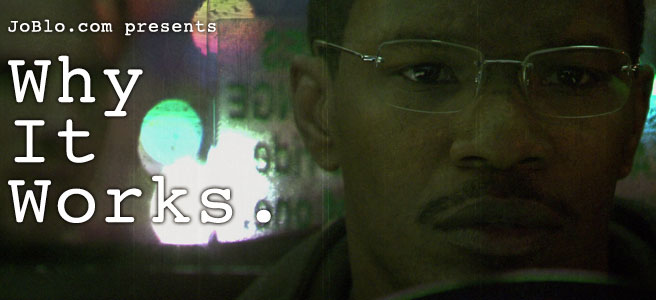 Why It Works is an ongoing column which breaks down some of the most acclaimed films in history and explores what makes them so iconic, groundbreaking, and memorable.
Why It Works is an ongoing column which breaks down some of the most acclaimed films in history and explores what makes them so iconic, groundbreaking, and memorable.
****SPOILERS AHEAD****
While this column tends to examine movies with unusual premises and plot structures, there's something arguably more impressive about a film that seems fairly ordinary at a glance but manages to be so much more beneath the surface. COLLATERAL tells the story of a cab driver forced to drive a hitman around Los Angeles for one night as he carries out his assignment- a plot which seems like standard fare- and yet the cast, script, and direction of Michael Mann's film result in a product against which the average action thriller pales in comparison. Here's why it works:
WHY WE LIKE THE CHARACTERS:
In Max, we have a fairly typical good guy, living day by day, telling himself this is all temporary until he gets his limo company off the ground. We can all identify with working a menial job for which we'r eoverqualified as well as making excuses for why we're there in the first place. Meanwhile, Vincent serves as the antithesis to Max, living in the moment and playing by his own rules. While we clearly have a good guy / bad guy relationship between the two, witnessing as their conflicting philosophies challenge and change each other gives us the theme and emotional through-line of the story. Vincent challenges Max's choice to glide through life without taking action, while Max and the events of the film steadily affect Vincent's cold, apathetic nature.
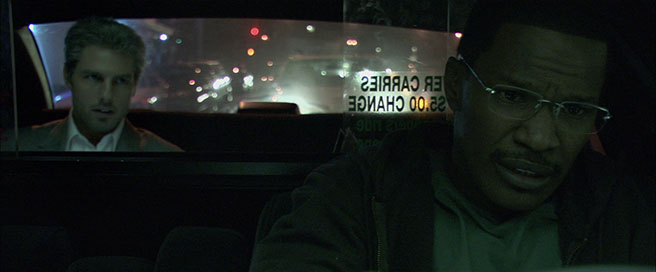 VINCENT: There's no good reason, there's no bad reason to live or to die.
VINCENT: There's no good reason, there's no bad reason to live or to die.
MAX: Then what are you?
VINCENT: I'm indifferent.
While none of the other characters in COLLATERAL has a traditional narrative arc, each plays a pivotal role in the story. First and foremost is Annie, who serves as a love interest for Max early in the film but raises the stakes in the end and brings an immediacy to Max's personal life- calling Annie is no longer something he can put off until tomorrow or the next day. Detective Fanning and the rest of the force on Vincent's tail give us a potential savior for Max, while Vincent's employer Felix both raises the stakes for our leads and gives us a taste of what Max is capable of when pushed too far. Finally, Daniel the jazz club owner and Max's mother Ida serve as foils to Vincent's philosophy; the more he interacts with people who draw a bit of sympathy out of him, the more doubt we see him struggle with.
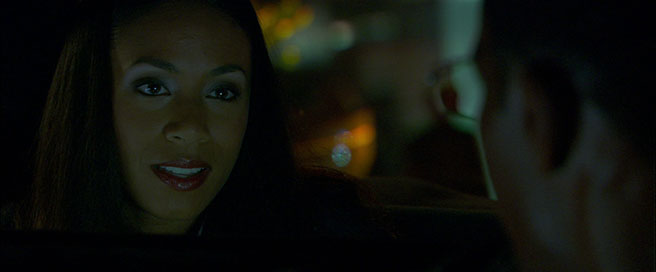 Jada has eight minutes to make both Max and us fall in love with her. She does it in like eight seconds.
Jada has eight minutes to make both Max and us fall in love with her. She does it in like eight seconds.
WHY WE CARE:
Life or death scenarios are a quick way to engage an audience, and COLLATERAL is no exception. Max has to survive the night, either by escaping, stopping Vincent, or staying on for the long haul and hoping not to be unceremoniously executed at the end of the night. That's not enough to drive an entire film, though, and so we have plenty of bumps in the road as we count down Vincent's five targets, including Max getting pulled over by the cops, thugs stealing Vincent's briefcase, Max's dispatcher and mother trying to track him down, and Max's eventual attempts to thwart Vincent's plan. Detective Fanning and the FBI add a sense of urgency to the film, as they're always just a step behind Vincent, though Vincent eventually killing Fanning subverts our expectations and makes us accept that Max will have to get out of this on his own. On a purely aesthetic level, COLLATERAL offers up several neighborhoods, clubs, and other set pieces to keep a movie set in one night in one city from ever stagnating.
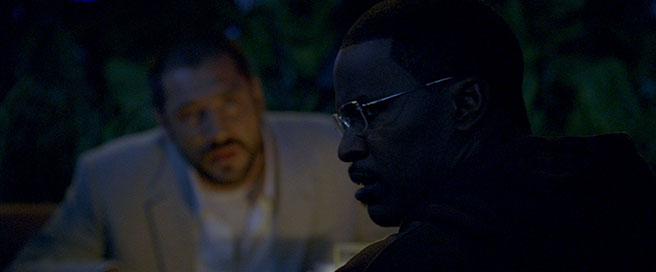 "I said I think you should tell the guy behind me to put his gun away before I take it and beat his bitch ass to death with it."
"I said I think you should tell the guy behind me to put his gun away before I take it and beat his bitch ass to death with it."
WHY WE'RE SATISFIED:
"A guy gets on the MTA here in LA. Dies. Think anybody'll notice?" Following a desperate attempt by Max to rescue Annie from Vincent, the pair escapes onto a train with their would-be killer still in pursuit. After a tense shootout and a bit of dumb luck, Max mortally wounds Vincent. As Vincent asks whether anyone will notice him with his dying words, we can't help but feel a pang of sympathy for the character. We don't get some emotional dying speech, as it wouldn't fit him or the tone of the film, and yet the moments of doubt we've seen Vincent experience throughout the film as well as his last words are just enough to give us a sense that he likely regrets a life of suppressing his emotions and refusing to see people as anything more than warm bodies in a meaningless world. As for Max, not only does he ride off into the sunset (okay, walk off into the sunrise) with the girl, but we don't need a sentimental epilogue to tell us he's probably not going to keep driving a cab around telling himself his dreams are for another day.
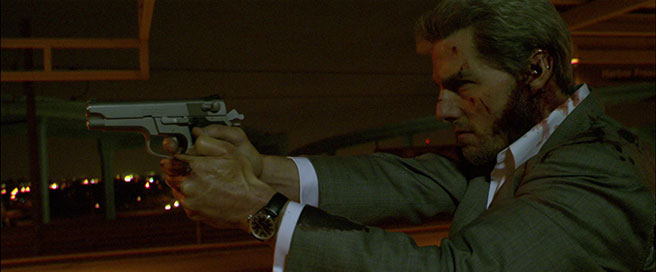 What's your Tom Cruise terrifying villain of choice? Lestat? Vincent? Grossman?
What's your Tom Cruise terrifying villain of choice? Lestat? Vincent? Grossman?
WHY WE REMEMBER:
Say what you will about shooting on digital, but this seems to be a film which truly benefits from the choice. There's a softness and a realness to Michael Mann's style which makes COLLATERAL feel visceral and intimate (but just makes a period piece like PUBLIC ENEMIES look super weird). In addition to his visual style, Mann finds several ways to make COLLATERAL feel like a more personal film, be it the occasional driving-around-to-music montage or taking a moment for Max and Vincent to watch coyotes crossing their path. We're spending an evening with these characters, not just racing from one action scene to another. Similarly, Stuart Beattie's script focuses heavily on character, almost treating the action as a backdrop for the development of Max and Vincent's relationship (while still providing plenty of action beats and tense moments along the way, of course).
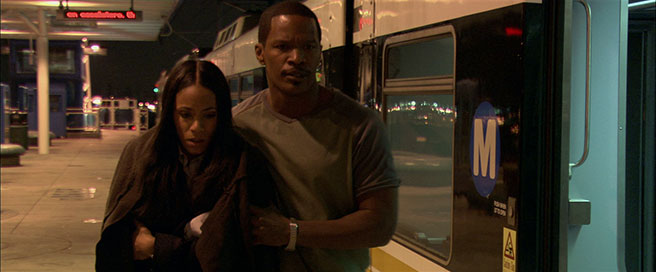 As COLLATERAL takes place entirely at night, Mann opted for digital over film in order to capture as much detail as possible.
As COLLATERAL takes place entirely at night, Mann opted for digital over film in order to capture as much detail as possible.
The cast is phenomenal, with Jamie Foxx's underdog and Tom Cruise's villain forcing both actors to play a bit outside their usual casting, and Jada Pinkett-Smith, Mark Ruffalo, Javier Bardem, Peter Berg, Bruce McGill, Irma P. Hall, and Barry Shabaka Henley round out the ensemble beautifully (not to mention a brief appearance by Jason Statham as the *ahem* transporter of Vincent's briefcase). Finally, music plays an important role here, with James Newton Howard, Tom Rothrock, and Antionio Pinto each scoring different scenes, and tracks ranging from The Roots, Groove Armada, and Miles Davis to Audioslave and Paul Oakenfold. The music not only adds a rich emotional palette to the film but also keeps us rotted in its ever-changing settings. COLLATERAL is an entertaining, well-made film- and certainly Michael Mann's best in recent memory- but it's ultimately the marriage of fascinating character study with tense action thriller which keeps it from being just another disposable popcorn flick.
Thoughts? What else worked for you? What didn't? Strike back below!
If you have any movies you'd like to see put under the microscope, let us know below or send me an email at brianbitner@joblo.com.



















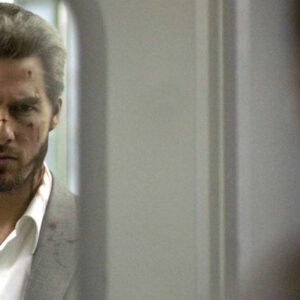
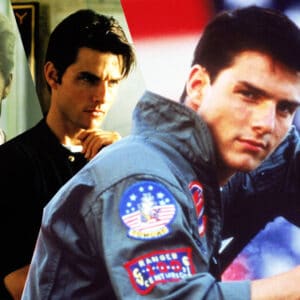
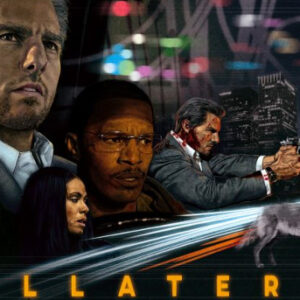

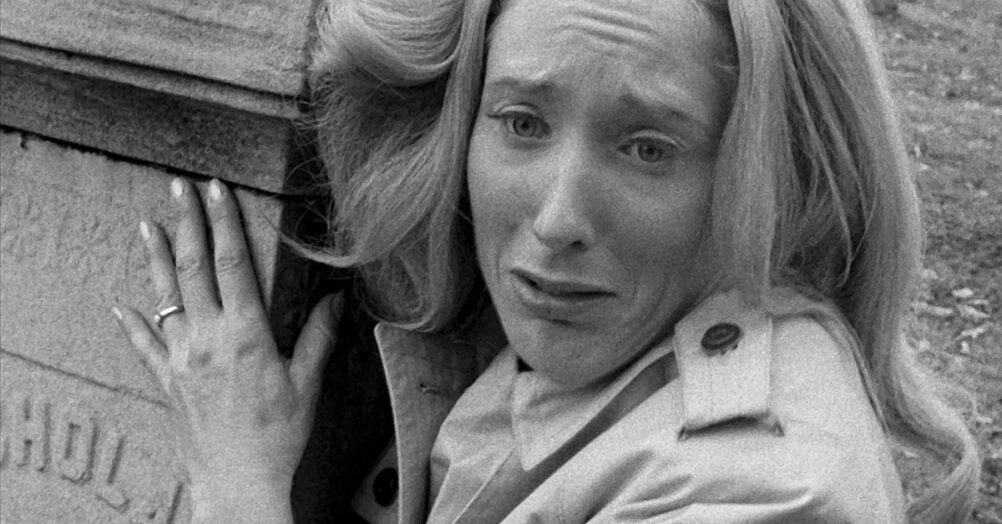

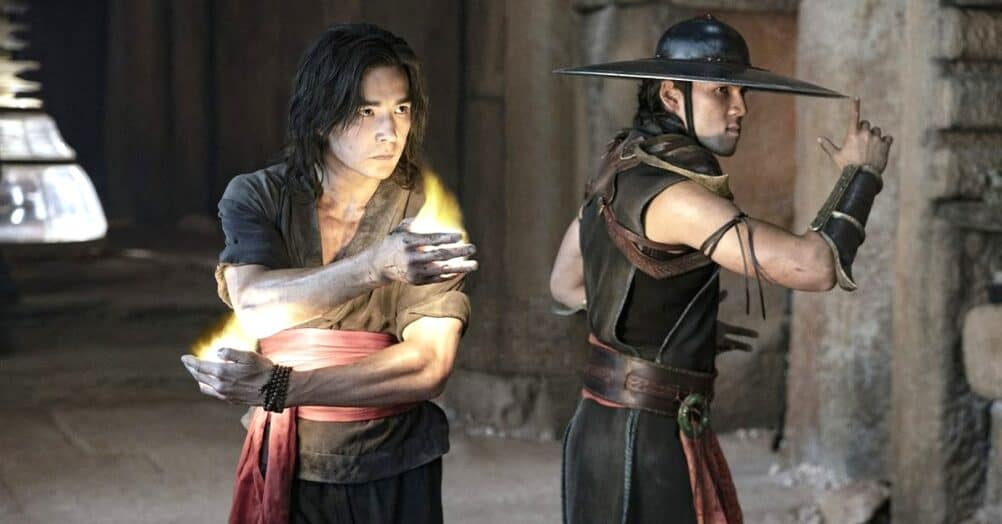




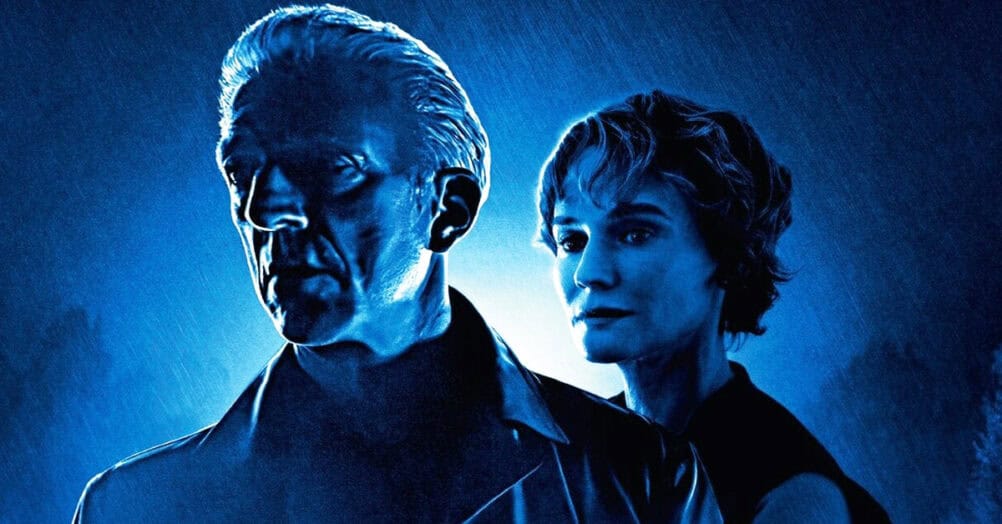



Follow the JOBLO MOVIE NETWORK
Follow us on YOUTUBE
Follow ARROW IN THE HEAD
Follow AITH on YOUTUBE